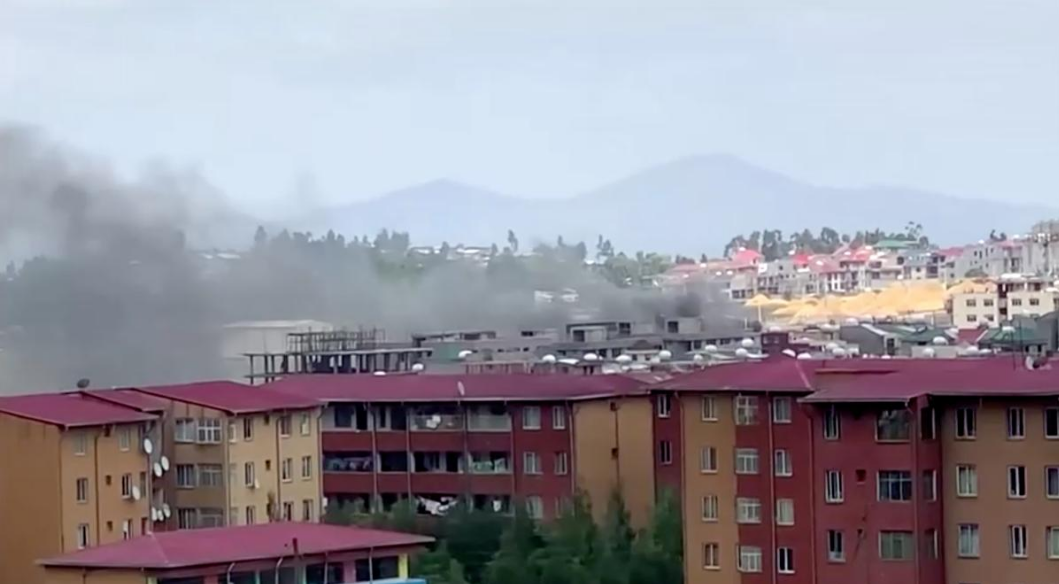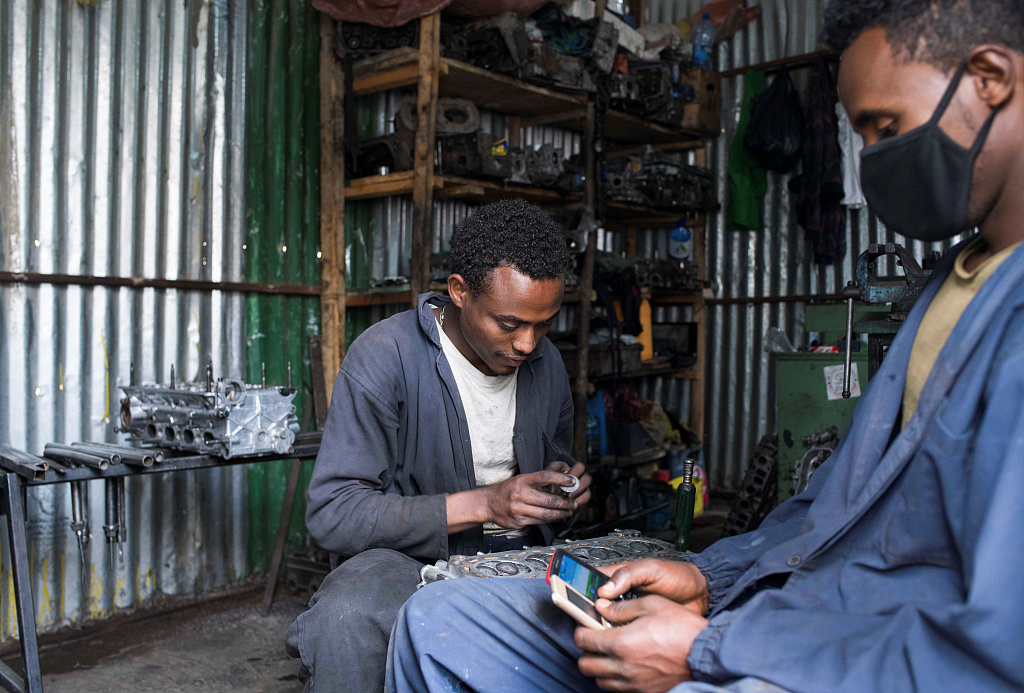
Smoke rises over Addis Ababa skyline during protests following the fatal shooting of the Ethiopian musician Haacaaluu Hundeessaa, in Addis Ababa, Ethiopia, June 30, 2020. /Reuters
Smoke rises over Addis Ababa skyline during protests following the fatal shooting of the Ethiopian musician Haacaaluu Hundeessaa, in Addis Ababa, Ethiopia, June 30, 2020. /Reuters
The military was deployed in the Ethiopian capital on Wednesday, as armed gangs roamed neighborhoods in a second day of unrest that has claimed more than 80 lives and deepened political divisions in Prime Minister Abiy Ahmed's political heartland.
The dead included 78 civilians and three members of the security forces. A policeman was also killed in Addis Ababa, and three explosions there caused an unspecified number of deaths, according to regional police commissioner Bedassa Merdassa on Wednesday.
The protests were sparked by the assassination of popular musician Haacaaluu Hundeessaa on Monday night and spread from Addis Ababa to the surrounding Oromiya region. Hundeessaa, famed for his political songs, had been considered a voice for Ethiopia's Oromo ethnic group.
Ethiopian Prime Minister Abiy Ahmed expressed his condolences and tweeted that an investigation was underway.
The killing of Hundeessaa tapped into grievances fueled by decades of government repression and what the Oromo, Ethiopia's biggest ethnic group, describe as their historic exclusion from political power.
"I am angry. It's eating me inside," protester Ishetu Alemu told Reuters as tires smouldered in the street behind him.

A mechanic works inside his opened garage store after protests which disrupted business, in Addis Ababa, Ethiopia, July 1, 2020. /Reuters
A mechanic works inside his opened garage store after protests which disrupted business, in Addis Ababa, Ethiopia, July 1, 2020. /Reuters
Gunshots echoed through many neighborhoods and gangs armed with machetes and sticks roamed the streets. Six witnesses described a situation pitting youths of Oromo origin against some of the city's other ethnic groups, and where both sides skirmished with police.
"We had a meeting with the community, and we were told to arm ourselves with anything we have, including machetes and sticks. We no longer trust the police to protect us, so we have to prepare ourselves," said one Addis Ababa resident, who like others interviewed asked not to be named for fear of reprisal.
An Oromo family said an armed gang had tried to break into their compound. Police had responded, but said they couldn't stay - they were getting too many other calls.
The military had been deployed in some areas, three witnesses said. One described a street littered with rocks that anti-Oromo protesters had thrown at police.
Police have detained prominent Oromo opposition leader Bekele Gerba and media mogul Jawar Mohammed on Tuesday alongside over 30 others. The media owner and the singer have become more critical of the prime minister in recent months; some Oromo activists accuse him of repression.
Many residents feared Haacaaluu's funeral - scheduled for Thursday in his home town of Ambo - could ignite more violence.
A tussle over whether to bury Haacaaluu in Ambo or Addis laid bare the political tensions fanning the protests, said Professor Awol Allo at Britain's Keele University.
"It's very contentious. Oromos claim the city (Addis) to be theirs, as it lies fully within the Oromo regional state," he said. But the capital is under federal, not regional control.
(With input from Reuters)